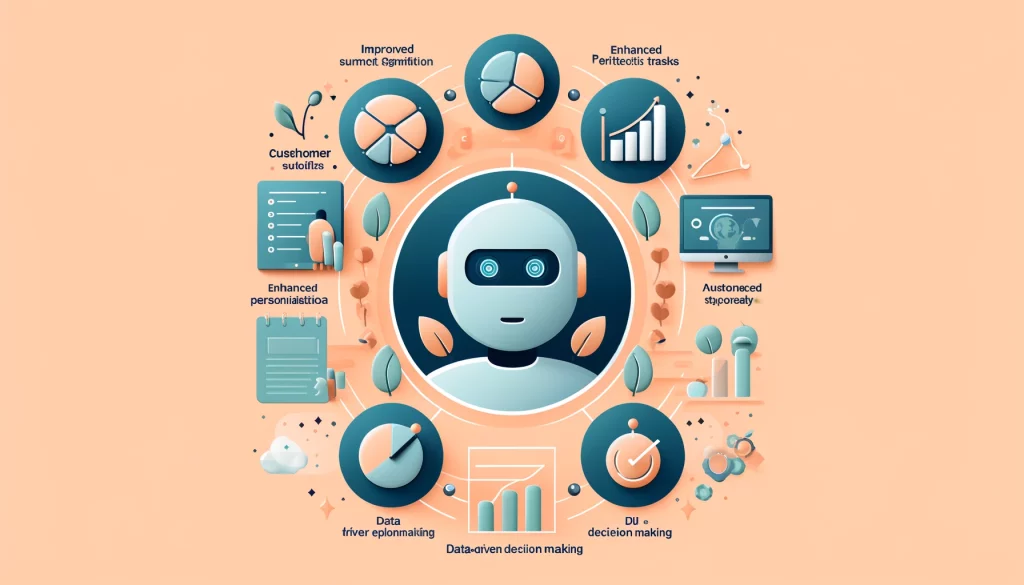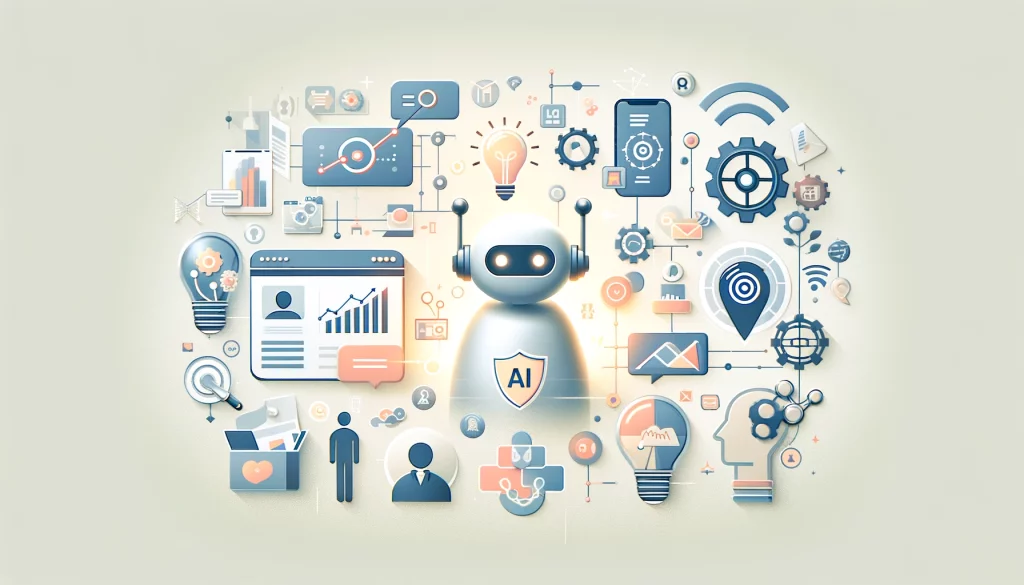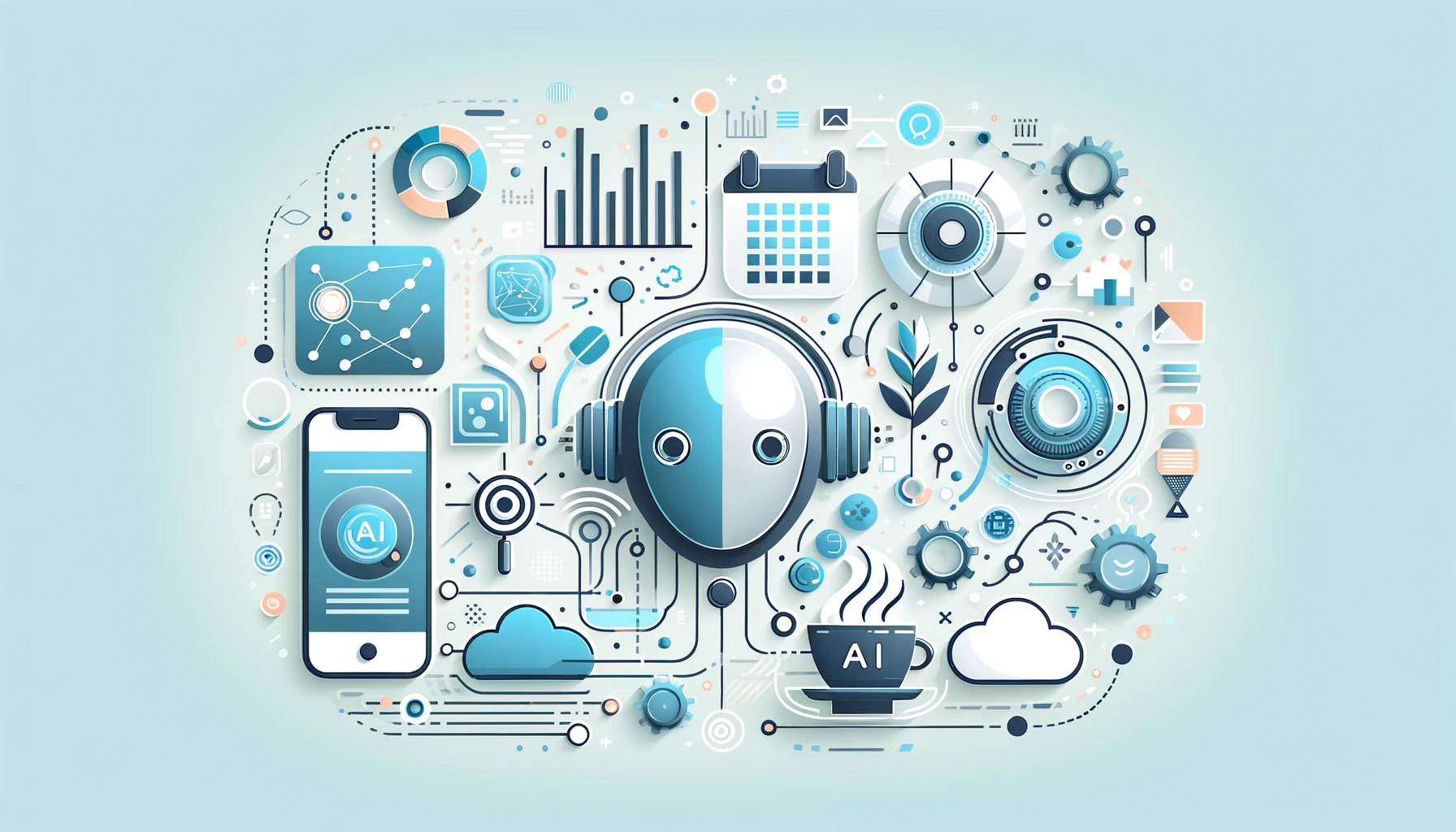Introduction
Artificial Intelligence (AI) is revolutionizing various sectors, and digital marketing is no exception. With its ability to analyze vast datasets, predict consumer behavior, and automate repetitive tasks, AI is rapidly becoming an indispensable tool for marketers. The integration of AI into digital marketing strategies offers unprecedented opportunities to enhance efficiency, personalize customer experiences, and ultimately drive marketing success. This article delves into how AI is transforming digital marketing strategies, highlighting the benefits, key applications, challenges, and real-world examples of AI in action.
Understanding AI in Digital Marketing
Definition of AI in Digital Marketing
Artificial Intelligence refers to the simulation of human intelligence in machines designed to think and learn like humans. In the realm of digital marketing, AI encompasses a variety of technologies, including machine learning, natural language processing (NLP), and predictive analytics. These technologies enable marketers to gain deeper insights from data, automate processes, and create more personalized and effective marketing campaigns (IngestAI, IBM).
Historical Perspective
The integration of AI into marketing has evolved significantly over the years. Initially, AI was primarily used for basic data analysis tasks. However, with advancements in technology, AI now powers sophisticated applications such as chatbots, personalized content creation, and advanced customer segmentation. These applications not only enhance the efficiency of marketing efforts but also improve the overall customer experience (MarketingHire).
Key AI Technologies
- Machine Learning: Machine learning algorithms are designed to improve through experience. In digital marketing, they help in predictive analytics and customer behavior forecasting, enabling marketers to make data-driven decisions and anticipate customer needs (Techmagnate).
- Natural Language Processing (NLP): NLP enables machines to understand and respond to human language. This technology is crucial for developing chatbots and other AI-driven tools that interact with customers in a natural and engaging manner (IBM).
- Predictive Analytics: Predictive analytics uses historical data to predict future trends and consumer behaviors. By analyzing past interactions and transactions, AI can forecast customer behavior and help marketers develop proactive strategies to engage their audience (IngestAI).
Benefits of AI in Digital Marketing
Improved Customer Segmentation and Targeting
One of the primary benefits of AI in digital marketing is its ability to analyze large datasets to identify patterns and segment customers more accurately. This enables marketers to target their efforts towards the most promising leads, thereby increasing the efficiency and effectiveness of their campaigns. AI-driven customer segmentation allows for more precise targeting, ensuring that marketing messages resonate with the intended audience (IBM, MarketingHire).
Enhanced Personalization and Customer Experience
AI enables hyper-personalization by analyzing customer data and behavior. By understanding individual preferences and behaviors, AI can help marketers deliver tailored content and offers, enhancing the overall customer experience. Personalized marketing not only increases customer satisfaction but also drives higher engagement and conversion rates (Techmagnate).
Automation of Repetitive Tasks
AI tools can automate a wide range of routine tasks, such as email marketing, social media posting, and customer service interactions. By automating these repetitive tasks, AI frees up time for marketers to focus on more strategic initiatives. For example, AI-powered chatbots can handle customer inquiries and provide instant support, improving customer satisfaction while reducing the workload on human agents (IngestAI).
Data-Driven Decision Making
AI provides real-time insights and analytics, enabling marketers to make informed decisions quickly. By analyzing vast amounts of data, AI helps marketers identify trends, measure campaign performance, and adjust strategies on the fly. This data-driven approach leads to more effective marketing campaigns and a higher return on investment (ROI) (IBM).
Increased ROI and Efficiency
AI optimizes various aspects of digital marketing, from ad targeting to content creation. By automating tasks and providing deeper insights, AI helps marketers allocate resources more efficiently and maximize the impact of their campaigns. This increased efficiency translates into a higher ROI, making AI an invaluable tool for digital marketers (IBM).
Key AI Applications in Digital Marketing
Chatbots and Customer Service Automation
AI-powered chatbots are transforming customer service by providing 24/7 support and handling inquiries efficiently. These chatbots can answer common questions, guide customers through purchasing processes, and even troubleshoot issues. As they interact with customers, chatbots learn and improve over time, enhancing their ability to provide effective support (Techmagnate).

Content Creation and Curation
AI tools like GPT-4 can generate high-quality content based on input data and parameters. These tools can create blog posts, social media updates, and product descriptions, helping marketers maintain a consistent content flow. Additionally, AI can curate content by analyzing its performance and suggesting improvements to optimize for engagement and SEO (IngestAI).
Email Marketing Optimization
AI enhances email marketing by analyzing customer data to create targeted campaigns. It can optimize send times, personalize content for individual recipients, and even predict which types of emails are likely to resonate with different segments of the audience. This level of personalization increases open rates, click-through rates, and overall campaign effectiveness (IngestAI).
Predictive Analytics for Customer Behavior
AI uses historical data to predict future customer behavior, enabling marketers to tailor their strategies proactively. For example, AI can identify customers at risk of churning and suggest interventions to retain them. It can also forecast future buying patterns, helping marketers plan more effective campaigns (Techmagnate).
Social Media Marketing and Sentiment Analysis
AI analyzes social media interactions to gauge public sentiment and optimize social media strategies. By understanding how customers feel about a brand or product, marketers can adjust their messaging and engage more effectively with their audience. AI-driven sentiment analysis helps marketers stay attuned to customer needs and preferences, enhancing their social media presence (Techmagnate).

Ad Targeting and Programmatic Advertising
AI optimizes ad placements and targeting through real-time bidding and automated adjustments. This ensures that ads reach the most relevant audiences, maximizing the effectiveness of advertising spend. AI-driven programmatic advertising takes into account user behavior, search patterns, and engagement history to deliver highly targeted ads (IBM).
Challenges and Considerations
Data Privacy and Security Concerns
The use of AI in digital marketing raises significant data privacy and security issues. Marketers must ensure compliance with data protection regulations such as GDPR to protect customer information. Failure to do so can result in heavy fines and damage to the brand’s reputation (IBM).
Integration with Existing Marketing Systems
Integrating AI tools with existing marketing systems can be complex and may require significant investment in time and resources. Marketers need to ensure that their AI solutions are compatible with their current infrastructure and that they have the necessary skills to manage and maintain these systems effectively (MarketingHire).
Ethical Considerations in AI Usage
AI usage in marketing must be ethical, avoiding biases and ensuring transparency. Marketers need to develop guidelines and best practices for using AI responsibly. Ethical AI practices build trust with consumers and ensure that AI-driven marketing efforts are fair and unbiased (IBM).
Managing and Maintaining AI Systems
AI systems require continuous monitoring and maintenance to function correctly. This includes regular updates and training to adapt to new data and trends. Marketers must be prepared to invest in the ongoing management of AI tools to ensure their effectiveness and reliability (MarketingHire).
Case Studies and Real-World Examples
Successful Implementations of AI in Digital Marketing
Several companies have successfully integrated AI into their marketing strategies, resulting in improved customer engagement and increased ROI. For example, Amazon uses predictive analytics to suggest products to users based on their past behavior, significantly boosting sales. Similarly, Google uses AI to optimize ad placements and targeting, ensuring ads reach the most relevant audiences (Techmagnate, IBM).
Lessons Learned from Industry Leaders
Companies like Google and IBM have pioneered AI in marketing, offering valuable lessons on implementation, data management, and ethical considerations. These industry leaders demonstrate the importance of strategic planning, continuous monitoring, and ethical practices in leveraging AI for marketing success (IBM).
Impact on Marketing Outcomes
The implementation of AI has led to more personalized marketing, better customer service, and more efficient ad targeting. These improvements have a significant impact on marketing outcomes, demonstrating AI’s potential to transform the industry. As AI technologies continue to evolve, marketers must stay updated with the latest advancements and best practices to leverage AI effectively (MarketingHire).
Conclusion
AI is transforming digital marketing by enhancing personalization, automating tasks, and providing data-driven insights. As AI technologies continue to evolve, marketers must stay updated with the latest advancements and best practices to leverage AI effectively. Embracing AI not only improves marketing efficiency but also ensures long-term success in a rapidly changing digital landscape. By integrating AI into their strategies, marketers can deliver more effective, personalized, and data-driven campaigns that drive better engagement, conversions, and overall business results.
Great! I’ll start by formulating a section of FAQs related to the topic of AI-driven digital marketing. Once we’re done with the FAQs, we’ll move on to creating images to enhance the article.
Frequently Asked Questions (FAQs)
Q1: How does AI improve the efficiency of digital marketing campaigns?
A1: AI improves efficiency by automating repetitive tasks such as email marketing, social media posting, and customer service interactions. It provides real-time insights and analytics, enabling marketers to make informed decisions quickly. AI-driven predictive analytics and customer segmentation help in targeting the right audience, thereby increasing the effectiveness of campaigns.
Q2: What are the ethical considerations in using AI for digital marketing?
A2: Ethical considerations include ensuring transparency, avoiding biases, and protecting customer data privacy. Marketers must develop guidelines and best practices for responsible AI usage. Compliance with data protection regulations like GDPR is crucial to avoid legal repercussions and maintain consumer trust.
Q3: Can small businesses benefit from AI in digital marketing?
A3: Yes, small businesses can benefit significantly from AI in digital marketing. AI tools are becoming more accessible and affordable, allowing small businesses to automate tasks, personalize customer experiences, and make data-driven decisions. This can lead to improved marketing efficiency and higher ROI, even with limited resources.
Q4: How is AI used in social media marketing?
A4: AI is used in social media marketing to analyze interactions, gauge public sentiment, and optimize strategies. It helps in understanding customer preferences and behaviors, allowing marketers to adjust their messaging for better engagement. AI-driven tools can also automate social media posting and monitor campaign performance in real-time.
